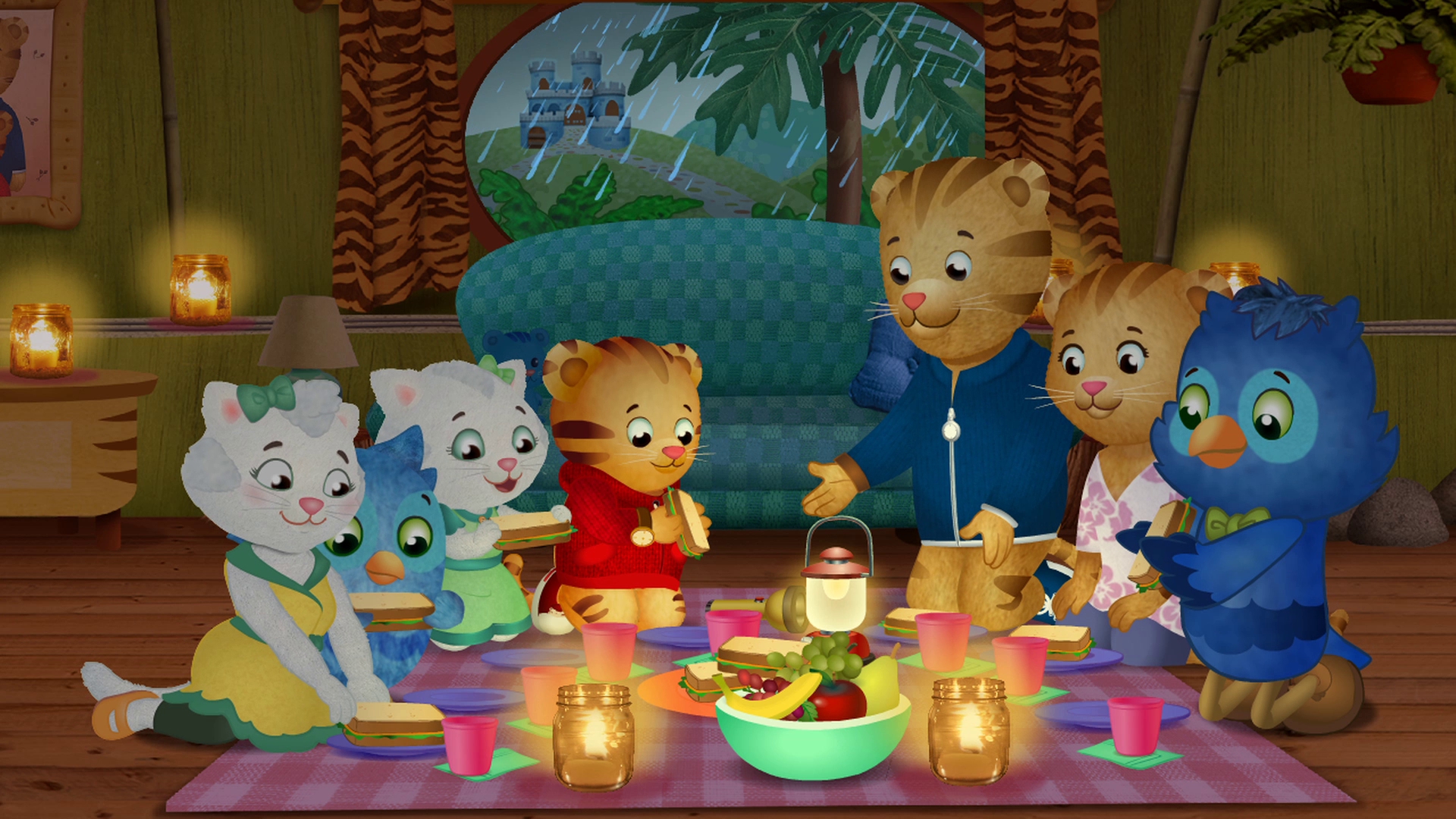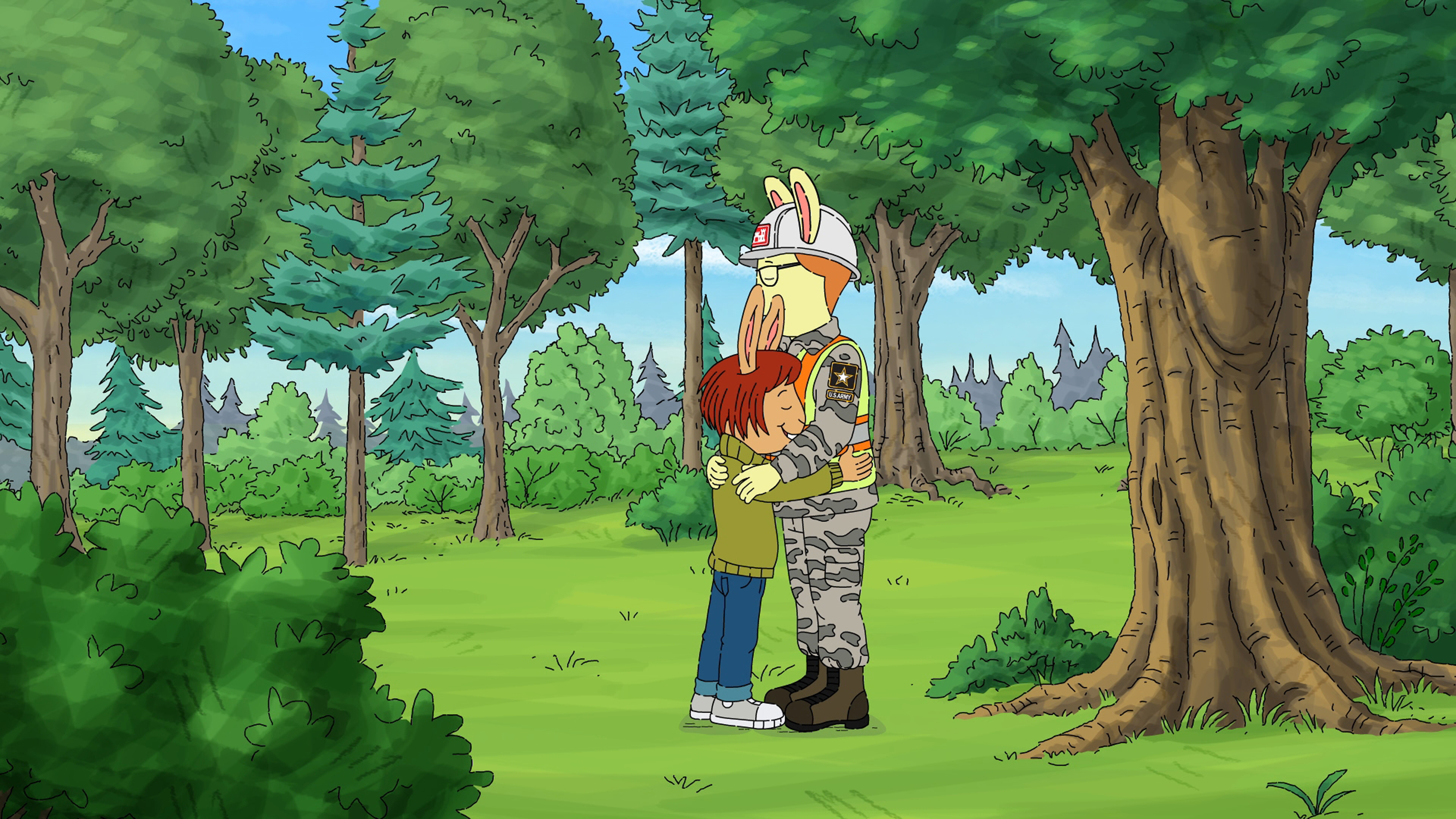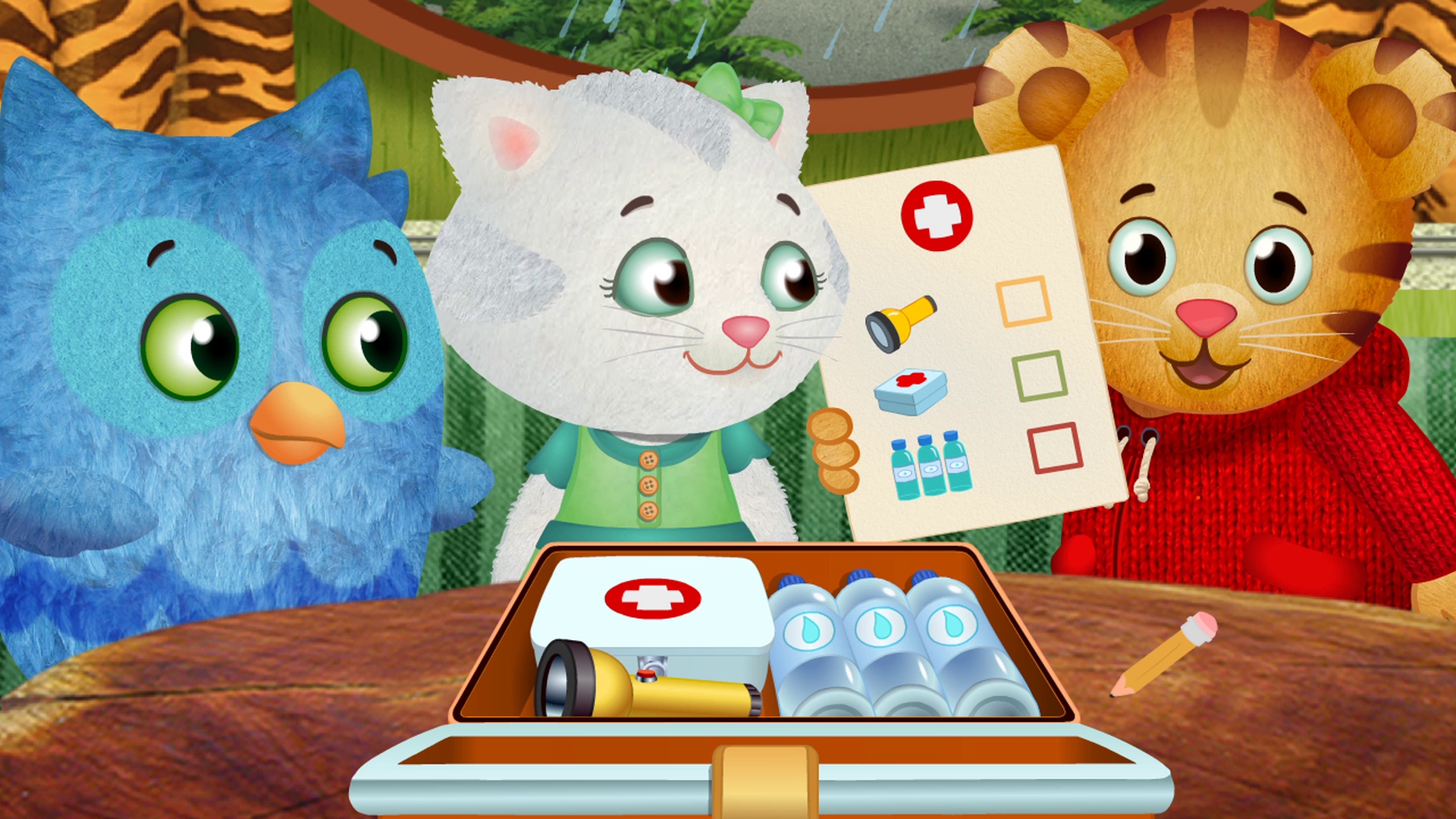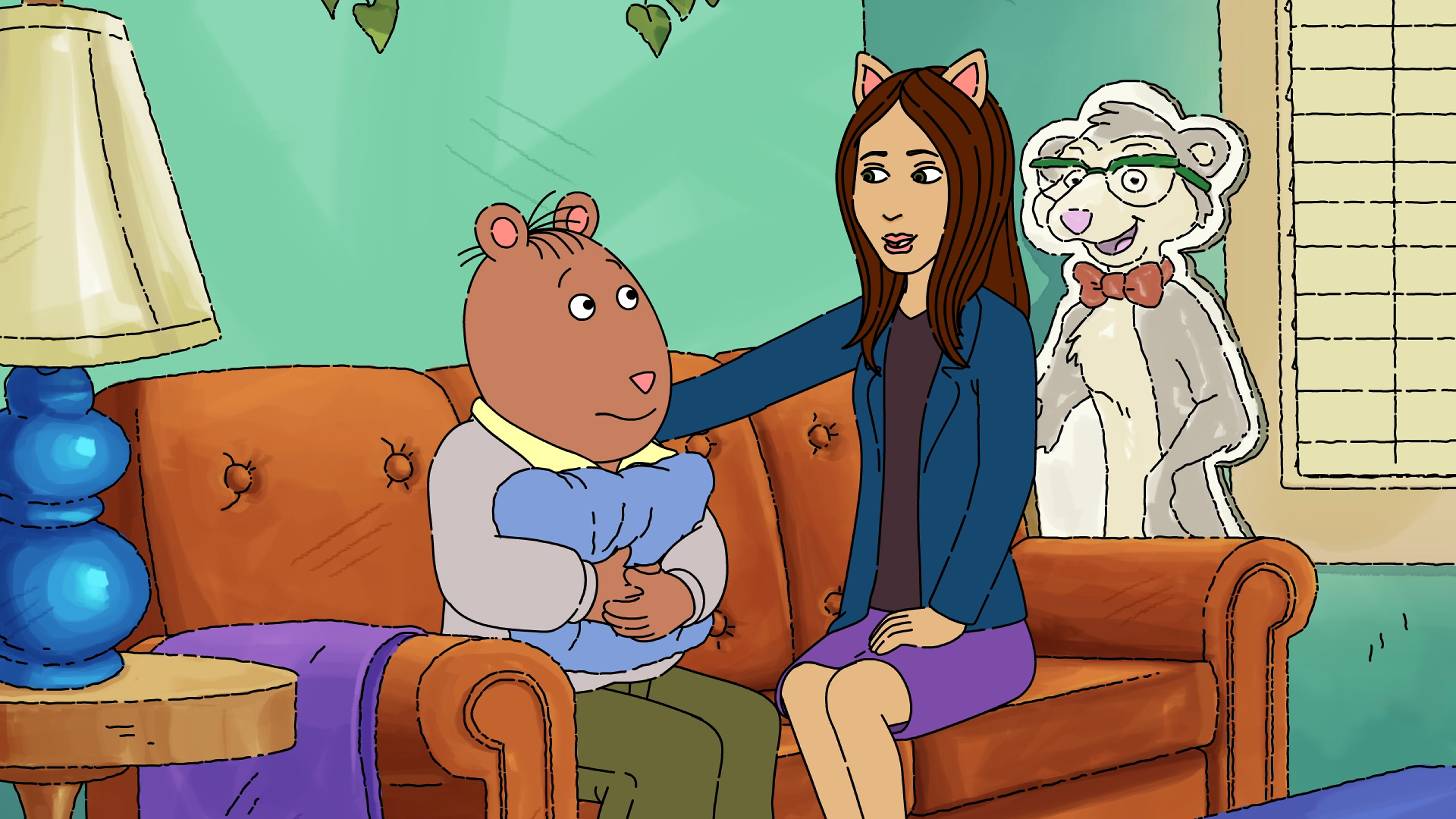
Originally posted on KCTS 9
In honor of National Preparedness Month, PBS Kids is premiering two new, storm-themed episodes of Daniel Tiger’s Neighborhood and Arthur. Featuring the characters we love, these new adventures show families how to prepare for some of life’s unexpected situations and how to best cope with these challenges. In addition to the TV programs, PBS Kids offers resources to help families prepare for and deal with potentially dangerous situations, from natural disasters such as wildfires, hurricanes and tornadoes to manmade crises such as community violence, car accidents, and other accidents. These helpful resources, developed by PBS Kids, The Fred Rogers Company and the Marjorie E. Pact Program, give parents guidance on how to nurture their children during scary, hectic, or unusual circumstances.
In times of community, national, or even worldwide crisis, it’s easy to assume that young children don’t know what’s going on. However, children are very sensitive to how their parents feel. They’re keenly aware of the expressions on their parents’ faces and the tone of their voices. Children always benefit when they are prepared for what is happening or may happen.
Here are some tips to help families prepare for emergencies and help children cope with confusing or scary situations.

How to prepare children for unexpected events/emergencies
Helpful steps for families to plan and prepare for emergencies
In your most reassuring, matter-of-fact voice, let children know that if an emergency happens, this is what to do:
- Find the grownup helpers; they’ll know what to do. Who could that be? Mom, Dad, other family member, nearest police officer, teacher, etc.
- Watch, listen, and stay calm.
- Remind children that they can practice ways to keep themselves safe every day (like wearing a seat belt in the car or a helmet when riding a bike/skateboard).
- Practice what you would do, and explain your family’s safety plan.
Helpful tips for parents during and after an emergency
In stressful times, these key steps can provide stability for both parents and children:
- Control children’s exposure to media before, during, and after the event. This is one way to manage images that might be scary or confusing for them.
- Keep yourself calm. Use your calmest and most reassuring voice when talking. Explain who will take care of them and keep them safe.
- Give plenty of hugs!
- Keep routines. Familiar ways of doing things help children feel safe.
- Do something your children enjoy, such as reading a book, playing a game, or telling a story.
- Laugh and have fun. This helps decrease tension.

How to help kids cope with changes and scary situations
Stress behaviors children might show
When stressed, a child’s behavior can change in a number of ways. Here are some of the symptoms of stressful behaviors children can show:
- Clinginess
- Easily crying or whining
- Being extra quiet or more active
- Sleep disturbance
- Changes in appetite or eating patterns
- Signs of regression, such as thumbsucking or potty accidents
How to support children after they have experienced unexpected events
Help your child navigate through such situations by:
- Encouraging pretend play
- Giving plenty of hugs
- Providing safe ways for children to express their feelings, such as drawing or telling stories
- Listen carefully to what your children are talking about. Acknowledge their feelings. Given them the words to describe how they feel such as, “It sounds like you’re feeling ‘scared,’ ‘unsure about what’s going to happen next,’ ‘sad,’ ‘angry.’ Labeling feelings will help you and the children.
- Answering children’s questions as simply and clearly as possible such as, “Yes, ____ did happen. Something may look different now, but there are some things that are the same.” Help children name those things. Reminding them, “We are safe and trying to make things better.”
- Remembering to be calm and understanding when children are being clingy, whiny, or over active. Helping them regain control of their feelings reassures them that you are keeping them safe.
- Keeping routines as familiar as possible.
- Minimizing children’s exposure to media coverage.
Support for parents: Remember to take care of yourself during stressful times. While it’s
important for children to share their feelings and have a daily routine, parents can also benefit from this same advice! It may be helpful for you to share your feelings and concerns with other adults or establish a daily routine that helps you cope with the present circumstance. Taking good care of yourself is another important way that you are helping to take care of your children!

Making an emergency supply kit
Preparing an emergency supply kit is crucial to preparing for the unexpected, but it can also be used as an introduction to talking with your children about emergencies. Ask your child to help you build your family’s emergency kit (see how Daniel Tiger does this with his family in the upcoming episode) and explain to them the importance of every item:
- Water (at least one gallon of water per person, per day)
- First aid kit
- Flashlight w/extra batteries
- Cellphone and chargers
- Toothbrushes/toothpaste/soap
- Canned and dry food
- Manual can opener
- Sleeping bag and/or warm blanket (for each member of your family)
- Change of clothes and sturdy shoes (for each member of your family)
- Battery powered or hand cranked radio
- Books/games/puzzles
- A favorite stuffed animal or toy.
Keep your kit in a safe place and refill it with fresh items often.
Tune in to new episodes of Arthur (“Shelter From the Storm – Parts 1 &2”) and Daniel Tiger’s Neighborhood (“A Storm in the Neighborhood/After the Neighborhood Storm”) on Tuesday, September 8 during their weekday airtimes.
Aditional resource: Parenting at Challenging Times: Community Crises and Disasters: A Parent’s Guide to Talking with Children of All Ages











